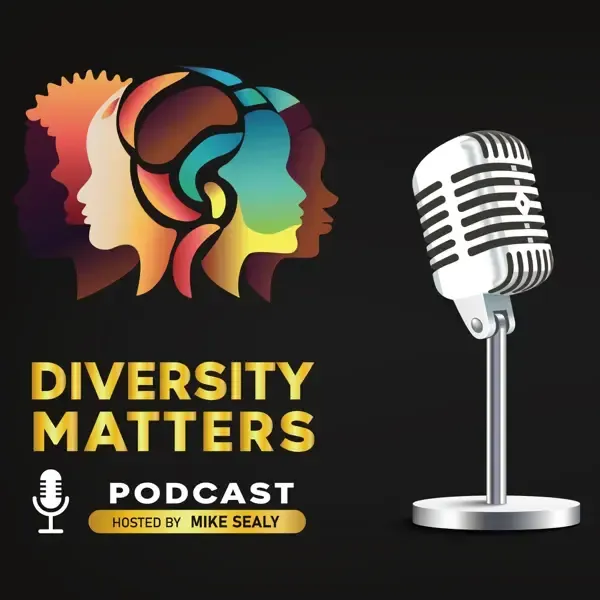Reclaiming Your Power: What My Research Revealed About Women and Marginalised Leaders

Over the past few months, I carried out a research project that left me both moved and intensely motivated. I spoke with 31 professionals, many of whom are women, people of colour, and individuals from underrepresented groups, who generously shared their honest experiences. What they revealed was powerful, painful at times, but also full of resilience.
This article is a summary of the full white paper I’ve written, entitled, What People Really Need: Coaching Insights from Inside the System which explores these findings in more depth. What you’ll read here are the key themes that stood out and the common challenges so many continue to face in workplaces and careers today.
What I Heard Loud and Clear
Across all conversations, six major themes kept emerging. They weren’t just about jobs or leadership—they touched on identity, belonging, and the exhausting effort of showing up in systems not designed with everyone in mind.
Here’s what stood out…
- Job Insecurity & Leadership Gaps
Many professionals described their roles as unstable—sometimes because of layoffs and restructuring, but often because of inconsistent, outdated, or unsupportive leadership.
Women and marginalised groups shared how much harder they felt they had to work to be seen as capable. Unlike others, they couldn’t rely on being “assumed competent.” Instead, they faced constant scrutiny, second-guessing, or being overlooked for growth.
The result? An ongoing sense of fragility and exhaustion, even while delivering excellent work.
- Time Pressure & Mental Overload
Almost everyone spoke about overwhelm. The most common phrase? “I feel like I’ve got too many tabs open in my head.”
This wasn’t simply about busyness. It was about blurred boundaries, constant demands, and the invisible labour of managing not only work but also family responsibilities and emotional load.
For women, especially, the “always on” expectation felt unsustainable. Many described the quiet toll of remembering everything for everyone, while also striving to succeed in demanding roles.
- Fear of Unfulfilled Potential
A quieter but deeply human theme emerged: the fear of never fully living up to one’s potential.
It wasn’t the failure people feared; it was the sense of dreams deferred, or opportunities missed. For women and marginalised groups, systemic barriers often made this fear more acute. Many questioned whether they were aiming high enough or if bias had shaped their sense of possibility.
This left participants caught between ambition and self-doubt, longing for more but unsure how to bridge the gap.
- Recognition & Support
A powerful theme was the longing to feel valued. Many described contributing far beyond expectations, yet receiving little recognition.
This wasn’t about ego, it was about being seen. Women and marginalised professionals often felt invisible, particularly when their leadership style was collaborative, empathetic, or understated.
Without recognition, some began to disengage, not because they didn’t care, but because they felt their care didn’t count.
- Equity & Belonging
There weren’t any questions about Diversity, Equity, and Inclusion (DEI) explicitly, but the themes of fairness, representation, and belonging ran through nearly every story.
Participants described the pressure of being the “only one” in the room, whether the only woman, the only Black professional, or the only openly gay leader. With that visibility came hyper-surveillance, extra scrutiny, and the burden of advocating for cultural change on top of their actual work.
Even where DEI programs existed, many felt they were merely surface-level, with impressive numbers but no meaningful cultural change.
- Identity & Self-Worth
Beneath all the professional themes sat something profoundly personal: identity.
Many admitted they were unsure who they were outside of roles, achievements, or responsibilities. Over time, identities like ‘the strong one’ or ‘the reliable one’ became masks, i.e., roles that brought approval but no longer reflected their true selves.
Women described the cost of code-switching, adapting, or shrinking themselves to fit in. For some, success felt hollow because it came at the price of authenticity.
Why This Matters
These six themes are more than isolated workplace complaints. They reflect the wider pressures of our times: economic instability, political polarisation, the rise of automation, and the lingering fatigue of the pandemic.
Trust in traditional systems, such as career ladders, corporate leadership, and job security, has eroded. And for women and marginalised groups, the challenges are heavier wth bias, exclusion, and invisibility layered on top of everything else.
The result is a generation of professionals quietly asking:
- How do I protect my energy in a system that doesn’t see me?
- How do I pursue ambition without betraying my values?
- How do I show up fully without constantly burning out?
These are not just professional questions—they are deeply human ones.
The Way Forward
This article is only a snapshot of the full white paper, which goes into greater depth on these six themes and what they mean for women and marginalised professionals navigating today’s workplaces.
If any of these themes resonate with you, I invite you to take the next step:
👉 Book a free discovery call to explore how these insights connect to your own journey.
👉 Or sign up to receive the full white paper and dive deeper into the findings.
Because you deserve more than survival. You deserve to feel safe, seen, and supported, on your own terms.
— Mike Sealy
Download Your FREE GUIDE NOW
Enter your details below for instant access
By signing up to this RESOURCE/GUIDE/VIDEO you consent to receive regular emails from X-Inc Global with updates and the occasional promotion for products. You can unsubscribe at any time. View our privacy policy in the footer.


